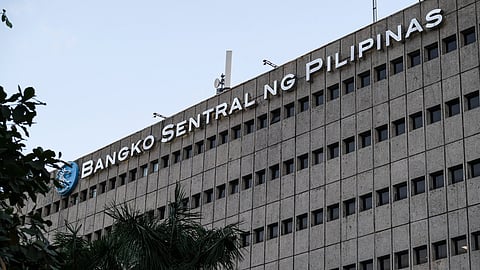
- NEWS
- the EDIT
- COMMENTARY
- BUSINESS
- LIFE
- SHOW
- ACTION
- GLOBAL GOALS
- SNAPS
- DYARYO TIRADA
- MORE

The country posted a $1.4 billion surplus from global transactions or balance of payments (BOP) in the first half of the year, lower than the year-ago surplus of $2.3 billion as foreign investors remained wary of geopolitical risks.
The Bangko Sentral ng Pilipinas (BSP) on Friday said the mid-year level came after a $1.2 billion surplus in the second quarter, a recovery from the $1.2 billion outflows recorded in the same period last year.
BSP data showed loans by foreigners mainly drove the surplus in the second quarter as they reached $5.3 billion from $204 million year-on-year.
Foreigners’ mixed investments or portfolio investments reversed to inflows amid high interest rates, while direct investments and other financial derivatives continued to flow into the country.
“We see a slight dip in direct investments due to a lot of geopolitical risks like those from the Middle East and Russia-Ukraine war,” BSP senior director for economic statistics Paolo Alegre Jr. said.
The inflows under the financial account as of June rose to $10.5 billion from $6.2 billion.
Capital transfers up
Capital transfers also rose to $18 million by 15.4 percent from $15 million in the second quarter.
However, the trade deficit worsened by 25 percent to $5.1 billion from $4.1 billion as payments for imported goods surpassed export income.
For the first six months, however, exports grew by 5.4 percent to $28.2 billion mainly due to more electronics, coconut oil, and chemicals.
The receipts for electronics and copper exports declined by 0.8 percent to $13.8 billion, while imports payments rose by 1.9 percent to $30.7 billion in the second quarter.
Major imported goods included rice, iron and steel, fuels, lubricant, and other minerals.
Rizal Commercial Banking Corporation chief economist said foreign investments might increase further as investors gain extra funds from a possible interest rate cut by the US Federal Reserve in the fourth quarter.
“The results came amid still relatively higher prices and interest rates globally and locally that still weighed on investments worldwide due to higher financing costs,” he said.
S&P Global Ratings said trade in goods will likely grow moderately in the Philippines and the rest of Asia as businesses avoid any inconveniences from geopolitical tensions against China.
